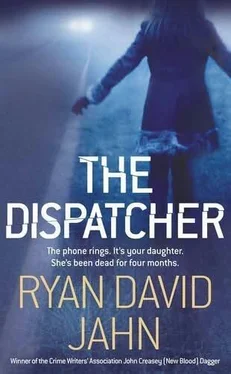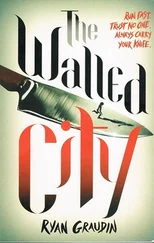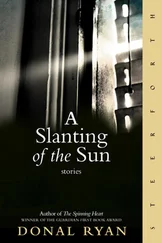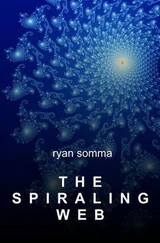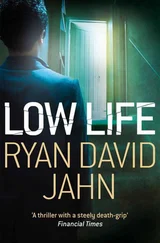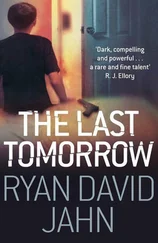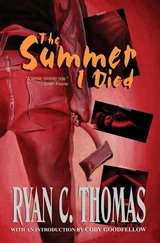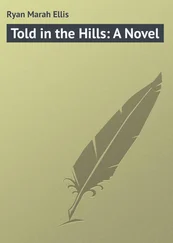Ryan Jahn - The Dispatcher
Здесь есть возможность читать онлайн «Ryan Jahn - The Dispatcher» весь текст электронной книги совершенно бесплатно (целиком полную версию без сокращений). В некоторых случаях можно слушать аудио, скачать через торрент в формате fb2 и присутствует краткое содержание. Год выпуска: 2011, Издательство: PENGUIN group, Жанр: Триллер, на английском языке. Описание произведения, (предисловие) а так же отзывы посетителей доступны на портале библиотеки ЛибКат.
- Название:The Dispatcher
- Автор:
- Издательство:PENGUIN group
- Жанр:
- Год:2011
- ISBN:нет данных
- Рейтинг книги:5 / 5. Голосов: 1
-
Избранное:Добавить в избранное
- Отзывы:
-
Ваша оценка:
- 100
- 1
- 2
- 3
- 4
- 5
The Dispatcher: краткое содержание, описание и аннотация
Предлагаем к чтению аннотацию, описание, краткое содержание или предисловие (зависит от того, что написал сам автор книги «The Dispatcher»). Если вы не нашли необходимую информацию о книге — напишите в комментариях, мы постараемся отыскать её.
The Dispatcher — читать онлайн бесплатно полную книгу (весь текст) целиком
Ниже представлен текст книги, разбитый по страницам. Система сохранения места последней прочитанной страницы, позволяет с удобством читать онлайн бесплатно книгу «The Dispatcher», без необходимости каждый раз заново искать на чём Вы остановились. Поставьте закладку, и сможете в любой момент перейти на страницу, на которой закончили чтение.
Интервал:
Закладка:
Then something touches his left hand. Some one touches his left hand. It is human. He is not alone. He tries to turn his head to the left but he cannot. Someone is stroking the web between thumb and index finger.
He doesn’t understand why he can’t turn his head to the left.
Open your eyes.
They are open: the moon like a silver dollar and the points of stars.
Open your eyes.
He does and the night sky gives way to a white ceiling, first out of focus and soft, then gaining sharpness. He blinks several times and turns his head to the left.
Debbie looks up from her lap. Her face is thin. She looks old, somehow, and tired. He has never thought that of her before, but he thinks it now. She is not wearing makeup and her eyes are red and the skin beneath them is blotchy and dark gray and the corners of her mouth are turned down.
‘Hi,’ he says, but it is little more than a whisper.
She says nothing at first, just looks at him. She wipes her nose, her red-rimmed nostrils, with the back of her wrist. Finally: ‘Bill’s dead.’
‘I’m sorry.’
Then he coughs, and there is that strange feeling like trying to breathe underwater. He coughs and coughs, and feels like phlegm or something should come up, but nothing does. His muscles tighten as he coughs and pain ripples through his body from the dropped-pebble point where the bullet said hello. He hears a strange liquid sucking sound from beneath a thin blanket which covers his torso. He lifts the blanket. A clear tube, a catheter about as big around as a woman’s pinky finger, sutured into his chest just under his armpit. Thread stitched through his flesh and then wrapped around the catheter to hold it into place. The skin pursed around it like lips around a straw, like some strange alien tulip. In the tube, blood and pus combined to form a thick pink liquid. A knot of it flows down the catheter to a small box on the floor with PLEUR-EVAC written on it.
He coughs again, and more liquid flows from his chest and into the tube. It hurts to cough. It hurts even to breathe.
‘Jesus,’ he says when he gets his breath back.
‘You were shot.’
After a moment, after he manages to get his breath back, he says, ‘I know.’
‘You had a collapsed lung.’
Ian nods.
Debbie frowns and looks down at her lap once more.
‘The twins are too young to remember Bill. They’ll grow up without any memories of their father to look back on.’
Ian is silent for a long time, lost on a strange raft of wooziness. Then what Deb said registers and he says, ‘Maybe-maybe that’s for the best. If it had to happen. Maybe you can’t miss something you don’t remember.’
Debbie shakes her head. ‘I don’t think it works that way.’
He squeezes Debbie’s hand. ‘I’m sorry about Bill. He made you happy. You deserve happiness.’
Debbie nods but says nothing. Instead she turns to look at an empty chair in the corner. She looks at it for a long time.
‘Did they get him at least? Is Maggie safe?’
Debbie shakes her head.
‘Bill’s dead, Chief Davis is in critical condition, he has no face, he’ll have to eat through a tube for the rest of his life, if he lives, and you’re here-yet that son of a bitch still has Maggie. It’s not right. It’s not fucking-’ Her voice chokes off and she looks down at her lap, and her shoulders shake.
‘We’ll get her back, Deb.’
‘How?’
‘I don’t know, but we will. I’ll think of something.’
He squeezes her hand again, but then another coughing fit overwhelms him, sending pain through his body like poison, and more blood and pus drain from his lung and into the catheter flowing from his chest.
‘Oh, fuck,’ he says. Then, once he’s caught his breath, ‘I’ll think of something. I’ll think of something and I’ll get her back.’
‘Do you really believe that?’
‘Yes.’
Debbie nods. ‘Then I’ll believe it too.’
The sun, partially hidden behind the western horizon (looking to Maggie like a grapefruit-half laid face-down on a table), spills pink light into the evening sky. The Ford Ranger rolls along the road toward it though Maggie knows if that’s their destination they’ll never make it. This thought reminds her of a conversation she once had with her daddy. She asked him why moths like light bulbs so much and Daddy said they thought light bulbs were the moon, that moths at night used the moon for guidance and flew toward it constantly, though they never reached it, and that they did the same with light bulbs, but once they’d reached the light they had no idea what to do with it. The moon had taught them that they would never have to worry about actually reaching their destination.
‘That’s kind of sad,’ Maggie said.
But Daddy just shrugged and bit the end off a cigar.
Henry glances over her head to Beatrice. ‘How you feeling?’
‘I’m still bleeding. I feel dizzy. I don’t even know how I cut myself. Did you see, Sarah?’
Maggie shakes her head and looks down at the pool of blood on the floorboard. Then she looks to Beatrice’s pale and sweaty face. She almost escaped. Beatrice collapsed as Maggie’d imagined she would, dropped like a felled tree, screamed and went down, but Maggie forgot her plan to wait for Henry and tried to run by the woman to get upstairs, and Beatrice reached out and grabbed for her. She grabbed her ankle and said, ‘Sarah, what happened?’ and Maggie went sprawling forward and hit her face on the third step and felt a strange bending in her nose, and blood flowing down her face. Everything went gray, a gray fog swept in, and by the time it cleared Henry was downstairs, helping Beatrice up the stairs and locking the door behind them as they left the basement. A moment later he came down for her, picked her up, and brought her outside where her daddy lay bloody in the gravel with a hole in his chest.
‘Look up yonder,’ Henry says.
He points to a small brick house about a quarter mile from the road. A few horses graze on brown grass in the pink evening. The house looks quiet, a single window illuminated. A gray Dodge Ram pickup parked by the side of the house, under a carport made of weather-grayed four-by-fours and plywood. A tire swing dangles still and lonesome from a big oak tree in the front yard.
‘We’ll stop there,’ he says, ‘get you fixed up and get rid of this truck. We ain’t safe driving it.’
‘I still don’t understand what happened, Henry.’
‘I know it.’
‘I don’t know why we had to leave the dishes.’
‘We’re in some trouble with the law, Bee. I explained that already. Hell, you seen-’
‘I didn’t see anything.’
‘You seen the cops in the-’
‘I didn’t see nothing. I was in a lot of pain, Henry.’
He looks at Beatrice for a long time, an unreadable expression on his face. Maggie has no idea what to make of it. Nor of the conversation itself. Beatrice must have seen the blood, she must have seen the policemen lying motionless in the driveway. You can’t not see something like that. Yet she says otherwise.
‘How you feeling, Sarah?’
Maggie turns and looks at Beatrice. ‘Okay,’ she says.
‘You know we’ll get through this, right? You know we love you?’
Maggie does not respond. She looks up ahead to the house they are quickly approaching. She looks at the light in the window and wonders what kind of people live within it. She imagines a cowboy hat with salt-white sweat stains on it hanging from a rack by the door. A man in dirty coveralls sitting on a couch. A woman mending socks. A baby playing in the middle of the floor wearing nothing but a cloth diaper. She wonders if they’ll be able to help her. If Henry stops there maybe she can get help. She can move her mouth silently when Henry’s looking the other direction. Help. Me. If she could just get help she would get away.
Читать дальшеИнтервал:
Закладка:
Похожие книги на «The Dispatcher»
Представляем Вашему вниманию похожие книги на «The Dispatcher» списком для выбора. Мы отобрали схожую по названию и смыслу литературу в надежде предоставить читателям больше вариантов отыскать новые, интересные, ещё непрочитанные произведения.
Обсуждение, отзывы о книге «The Dispatcher» и просто собственные мнения читателей. Оставьте ваши комментарии, напишите, что Вы думаете о произведении, его смысле или главных героях. Укажите что конкретно понравилось, а что нет, и почему Вы так считаете.
